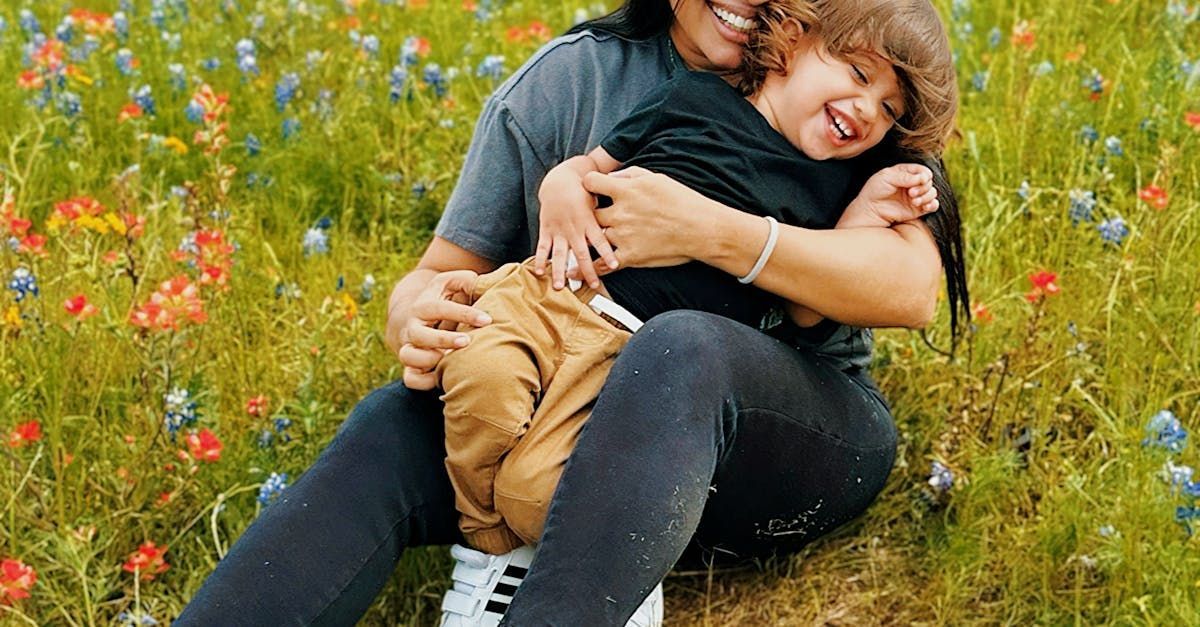Tips for Traveling with Young Children
Tips for Traveling with Young Children

Traveling with young children can be an enriching experience for the whole family, but it requires careful preparation and planning. By anticipating their needs and being well-prepared, parents can ensure a smooth and enjoyable journey. This guide provides comprehensive tips for traveling with young children, covering everything from packing essentials to managing routines and behavioural challenges.
Planning Your Trip
Choosing Child-Friendly Destinations: Opt for destinations that offer family-friendly amenities and activities. Look for places with parks, playgrounds, and attractions suitable for children.
Considering the Length of Stay: A shorter trip might be easier for young children to handle, especially if it's their first time traveling. Gradually increase the length of your trips as they become more accustomed to traveling.
Involving Children in the Planning Process: Engage your children in planning by letting them choose activities or places they want to visit. This helps build excitement and ensures there are activities they will enjoy.
Packing Essentials
Packing Checklists for Children: Create detailed checklists for each child to ensure nothing is forgotten. Include clothing, toiletries, medications, and comfort items like a favourite blanket or toy.
Must-Have Items for Comfort and Convenience: Bring items that will keep your child comfortable, such as a travel pillow, noise-canceling headphones, and a portable high chair.
Tips for Packing Light: Use packing cubes to organise items and minimise luggage. Consider renting bulky items like strollers or car seats at your destination.
Health and Safety
Carrying Essential Medications and First-Aid: Pack a well-stocked first-aid kit with items like band-aids, antiseptic wipes, and any prescription medications your child may need.
Keeping Children Safe in Different Environments: Teach your children about safety in various settings, such as staying close in crowded places and avoiding unfamiliar animals.
Emergency Contacts and Local Healthcare Information: Research and note down emergency contact numbers and local healthcare facilities at your destination.
Preparing for the Journey
Tips for Car Travel: Plan for frequent breaks to let children stretch and move around. Pack snacks and activities to keep them occupied.
Tips for Air Travel: Arrive early at the airport, bring activities for the flight, and be prepared for potential delays.
Keeping Children Entertained During the Journey: Pack a variety of toys, books, and electronic devices with headphones. Consider downloading new apps or movies for the trip.
Managing Travel Anxiety
Preparing Children Mentally for the Trip: Talk to your children about what to expect, showing them pictures or videos of the destination.
Techniques for Calming Anxious Children: Use calming techniques such as deep breathing, listening to soothing music, or cuddling a favourite stuffed animal.
Creating a Sense of Security: Maintain familiar routines and bring items that provide comfort, like a blanket or favourite toy.
Accommodation Tips
Choosing Family-Friendly Accommodations: Look for hotels or rentals that offer family suites, kitchen facilities, and child-friendly amenities.
Childproofing Hotel Rooms: Bring outlet covers and check for potential hazards in the room. Rearrange furniture if needed to create a safe space.
Ensuring Comfort and Familiarity: Set up the room with familiar items from home, like a favourite blanket or nightlight.
Food and Nutrition
Packing Snacks and Meals: Bring healthy snacks and meals for the journey and to have on hand at your destination.
Finding Child-Friendly Restaurants: Research restaurants that offer children's menus and high chairs. Call ahead to make reservations.
Keeping Up with Dietary Needs and Preferences: Make sure to have a variety of options to cater to your child's dietary needs and preferences.
Activities and Entertainment
Engaging Activities for Children During the Trip: Plan activities that are suitable for your child's age and interests, such as visiting a zoo or children's museum.
Balancing Adult and Child Interests: Find activities that can be enjoyed by the whole family, ensuring everyone has a good time.
Utilising Local Resources and Attractions: Check out local libraries, community centres, and parks for free or low-cost activities.
Maintaining Routines
Importance of Sticking to Routines: Try to keep regular meal and sleep times to provide a sense of normalcy.
Adjusting Routines to Fit Travel Schedule: Be flexible and adjust routines as needed, but maintain key elements to keep children comfortable.
Managing Sleep Schedules: Bring along familiar bedding and try to replicate your home sleep environment as much as possible.
Managing Behavioural Challenges
Handling Tantrums and Meltdowns: Stay calm and address the situation with patience. Use distractions or calming techniques as needed.
Setting Expectations and Rules: Explain travel rules and expectations clearly to your children before and during the trip.
Reward Systems and Positive Reinforcement: Use a reward system to encourage good behaviour. Offer praise and small rewards for following rules and being cooperative.
Cultural Sensitivity and Learning
Teaching Children About New Cultures: Introduce children to the local culture through books, videos, and discussions before the trip.
Encouraging Respectful Behaviour: Teach your children to be respectful of different customs and traditions they may encounter.
Making Learning Fun and Interactive: Use interactive activities like scavenger hunts or cultural crafts to make learning about the destination enjoyable.
Documentation and Records
Keeping Necessary Travel Documents: Ensure all travel documents, such as passports and visas, are up to date and readily accessible.
Recording Memories and Experiences: Encourage children to keep a travel journal or scrapbook to document their experiences.
Importance of Travel Insurance: Invest in travel insurance to protect against unforeseen events and emergencies.
Returning Home
Easing the Transition Back to Routine: Gradually return to normal routines to help children adjust back home.
Reflecting on the Trip with Children: Discuss the highlights and memories of the trip with your children to reinforce positive experiences.
Keeping in Touch with New Friends Made: Encourage children to stay in touch with any new friends they made during the trip.
Conclusion
Traveling with young children can be a rewarding and memorable experience with the right preparation and mindset. By following these tips, parents can ensure a smoother journey and create lasting family memories.

















